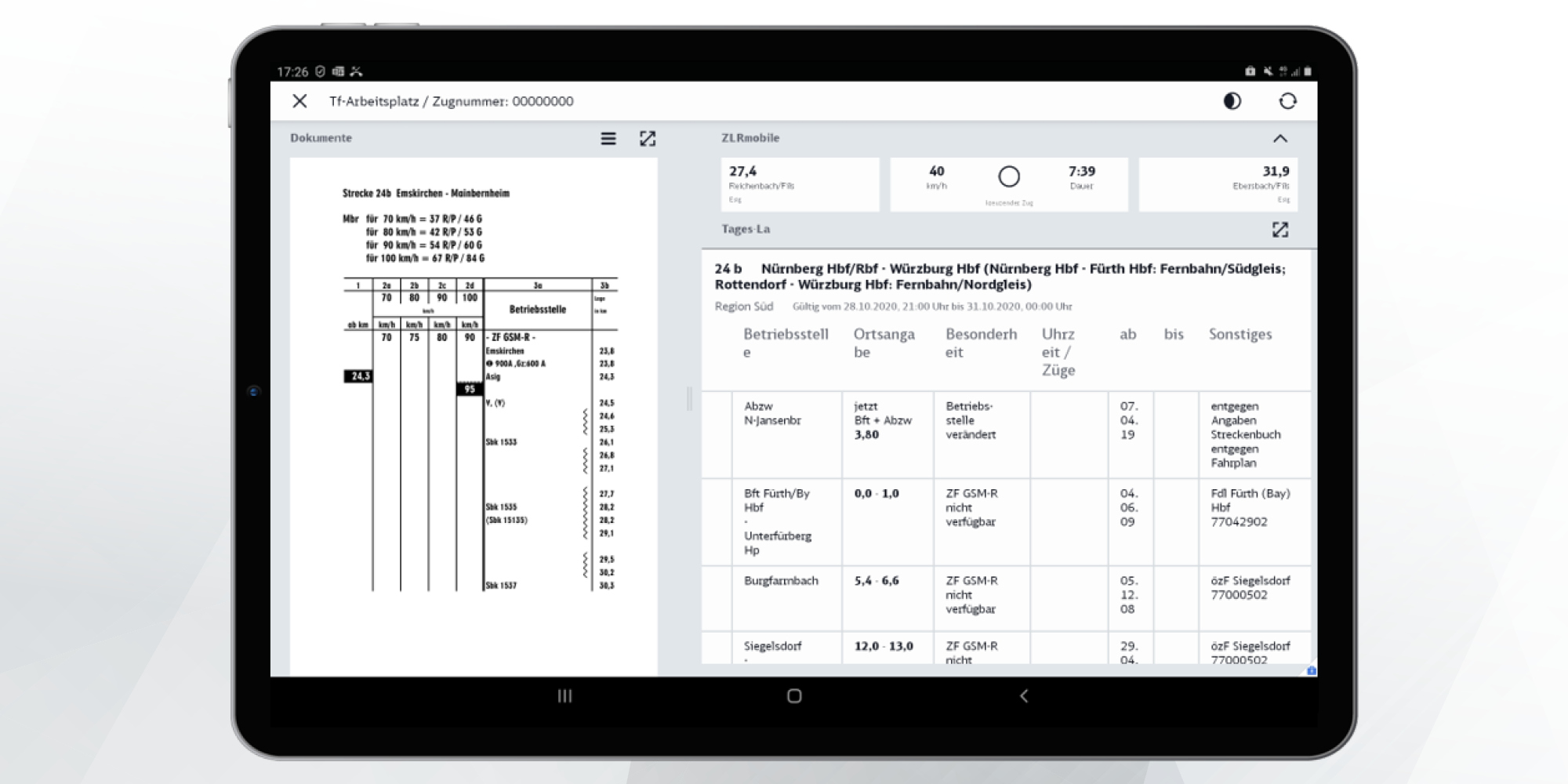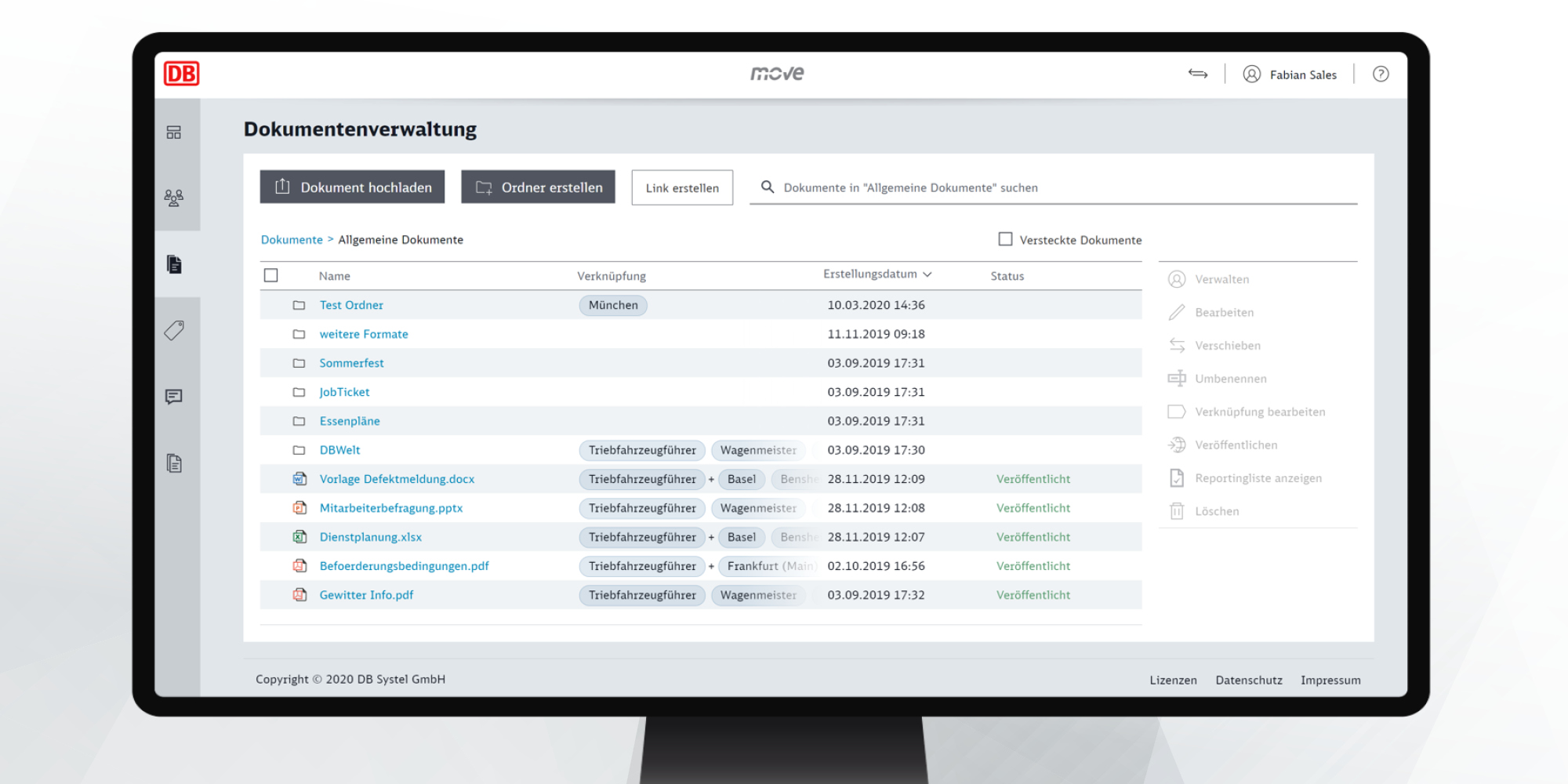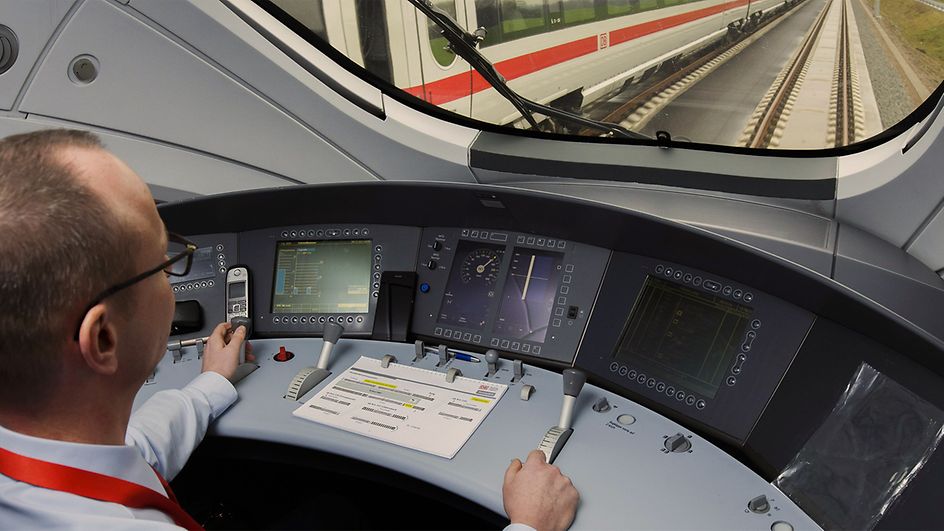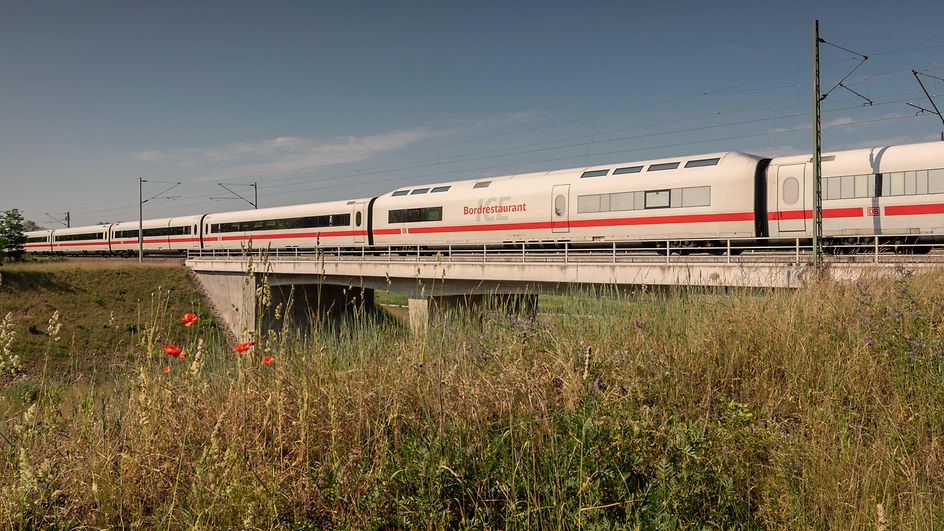FASSI-MOVE assistance system
Article: A digital breakwater to stem the flood of information
11/2020 – By the end of 2020, all DB Regio train crews will be equipped with the new FASSI-MOVE assistance system. This is a quantum leap for train drivers and customer support agents. In future, they will receive all relevant information digitally – and, finally, only the information that concerns them personally.
By the end of the year, DB Regio will replace its old document distribution system with the FASSI-MOVE system developed by DB Systel. In future, the digital assistance system will provide DB Regio’s approximately 18,000 train drivers and regional transport attendants with the information that is relevant to their work in a more efficient and customised way. This is not only a major digital feat, but also the start of a real system change: FASSI-MOVE has been adapted by DB Systel in close cooperation with DB Regio to meet the special requirements of regional and local rail passenger transport. This promises to give a completely new direction to the flow of information of the most important provider in German regional and local rail passenger transport.
The bar for FASSI-MOVE is high: 18,000 new tablets with FASSI-MOVE have been issued to employees to provide drivers and regional transport attendants with even better support for their work on the train. The new mobile assistance system also brings high hopes for the future: “With FASSI-MOVE, we want to provide the digital platform for train crews,” says Fabian Meier, product owner (PO) of the coordinating development team for FASSI-MOVE at DB Systel.
An impressive performance
It was easy to leave the old system behind: “The previous system was established and it worked,” says Jens Naumann, Head of Operations and Service Excellence at DB Regio. However, the framework agreement had expired and, according to Naumann, “The functionality and possibilities of FASSI-MOVE were very impressive.”
“With FASSI-MOVE, employees finally receive only the information that actually concerns them."

The main reason for the change was FASSI-MOVE’s competence-based document provision. Previously, train crew members often received all the information provided by DB Regio unfiltered, which resulted in information overload. “Employees had mailboxes full of information about vehicles and routes that weren’t even relevant for them,” explains Jens Naumann. “With FASSI-MOVE, employees finally receive only the information that actually concerns them.”
“The feedback is already very positive,” Jens Naumann reports. Employees who still had to work with paper documents were enthusiastic about it, and those who had previously used the old system saw FASSI-MOVE as a definite step forward. According to Naumann, FASSI-MOVE stems the often burdensome flood of information. Some employees even thought that half of the information was missing, until they realised that the only documents missing were those that they had never needed anyway.
Fewer clicks, less distraction
This positive response is not surprising. It is down to two things: the detailed FASSI-MOVE induction received by all train crews and the preparatory work done by the editors and group leaders. Staff were prepared for working with FASSI-MOVE in training courses developed jointly by DB Regio and DB Systel.
With the introduction of FASSI-MOVE, the previous regional variations were resolved. Now that user master data is harmonised across all regions, editors can assign the required documents and information individually for each user.

Another thing that makes FASSI-MOVE different is its user-friendly interface. A dashboard on the tablets allows drivers to see the information they need at a glance, such as energy-saving tips, daily information on speed restriction sections and additional information on the timetable for the current journey. “For me, this is the great advantage of FASSI-MOVE,” says Jens Naumann. “Being able to proceed with just a few clicks and swipes instead of having to waste time opening and closing applications makes it safer to use. FASSI-MOVE reduces the chance of distraction to a minimum,” says Naumann.
“At the moment, we are also working on upgrading the working timetable in digital form to FASSI-MOVE."

The fact that FASSI-MOVE is future-proof is another key consideration, as the train driver and regional transport attendant professions become increasingly digitalised. FASSI-MOVE provides the platform for the further development of driver assistance systems. “We are currently working on upgrading the working timetable in digital form to FASSI-MOVE and discussing further options for energy-saving displays,” says Fabian Meier.
Information should come from a single source
For Jens Naumann, the transfer of the EBuLa (electronic working timetable and speed restrictions) system, which currently runs on permanently installed on-board equipment, to FASSI-MOVE is the first step in the direction of removing the old vehicle-bound nature of cab signalling. “In the past, this has always been complex and expensive. Our goal is clear: we want to make these displays independent of the vehicle. Instead of investing a lot in the vehicle equipment as before, we want to integrate new modules and functionalities into FASSI-MOVE to make this system the sole source of information for drivers where possible,” says Jens Naumann.
More assistance with day-to-day work, more functions and tools to boost efficiency – FASSI-MOVE will deliver this. And this should also make it attractive for other DB Group companies. The mission being pursued by DB Systel and DB Regio is relevant throughout the entire DB Group. “Together with a large number of development teams, we will continue to develop further modules,” says Meier. “Although we have achieved a lot, we are still in the early stages of digitalisation.”



